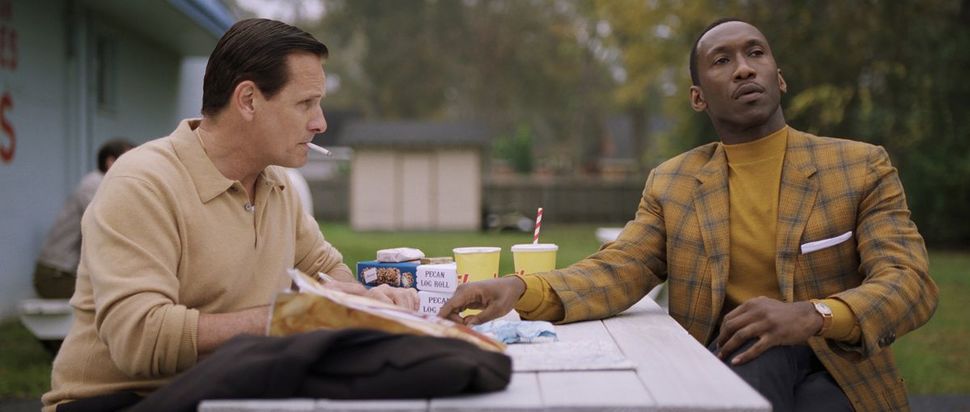Green Book's Oscar win is a catastrophe of bad taste
The glib race-relations drama joins the likes of Crash, Argo and Driving Miss Daisy on the long list of mediocre films to win Best Picture
There were many reasons to cheer last night’s Oscars. The surprise Best Actress award for Olivia Colman over the hot favourite, Glenn Close (please check out Colman’s charming acceptance speech – "This is hilarious, I've got an Oscar!"). The first Oscar proper being handed to Spike Lee, for Best Adapted screenplay for BlacKkKlansman. Regina King taking an award home for her knockout supporting performance in If Beale Street Could Talk. And a Best Director award for Alfonso Cuarón for the extraordinary Roma, which also won Best Foreign Language Film.
All those deserving awards were overshadowed, however, when Green Book took Best Picture. It probably wasn’t the worst film nominated for the Oscars’ top prize this year – that award should be fought over by the cheese-fest that is Bohemian Rhapsody and the smug, charmless Vice – but it is the most retrograde. Based on real events, the film centres on the supposed friendship that formed between virtuosic African-American pianist Don Shirley (played by Mahershala Ali) and Tony “Lip” Vallelonga (Viggo Mortensen), an Italian-American hardcase whom Shirley hired to drive him through America’s southern states on his concert tour in the early 60s, an era when black patrons were still not welcome in many hotels and restaurants.
Directed by Peter Farrelly (of gross-out comedies like Dumb and Dumber and There’s Something About Mary) and written by Vallelonga's son Nick, the film is clearly attempting to be a sensitive race-relations drama. 'Look how far America has come from its less enlightened past,' the film seems to say. At best, that’s a naive stance to take with the rise of the alt-right in the States and across the world. At worst, it’s a cynical balm applied to white audiences in order to make them feel better about the present and their own prejudices.
The film is essentially a mirror image of Driving Miss Daisy, which won the Best Picture Oscar 30 years ago, only in this case the white character is in the driving seat, and not just in terms of who has their hands on the steering wheel. The movie is very much told from Vallelonga’s point of view, showing him to be more enlightened in the world of African-American culture than his snooty boss. We watch through our hands as the casually racist Vallelonga schools Shirley on the music of Aretha Franklin and Little Richard, and teaches him how to eat fried chicken. With the Academy making a move to be more racially diverse over the last few years, to award this crass movie its top honour is a slap in the face.
No-one was less impressed with Green Book’s win than director Spike Lee, who made his way towards the exit when Farrelly's film was announced Best Picture. Later he told reporters: “Every time someone is driving somebody, I lose,” referring to Driving Miss Daisy winning the year he made the blistering Do the Right Thing. And when he was asked directly about Green Book's win, a six-glasses-of-champagne-deep Lee said: “I was courtside in the Garden. The ref made a bad call.”
Lee’s reaction is on the money. Sometimes it takes a few years for it to become evident that a mediocre film has been overrated by Oscar voters. With Green Book, it’s clear for all to see on the night. The consolation for films like Roma, The Favourite and Spike Lee’s BlacKkKlansman is they’ll be remembered and continue to be rewatched long after Green Book joins the likes of Crash, Argo, American Beauty and The Artist on the long list of other embarrassing Oscar winners who now reside in the bargain bin of film history.
For the full Oscar results, head to oscar.go.com
